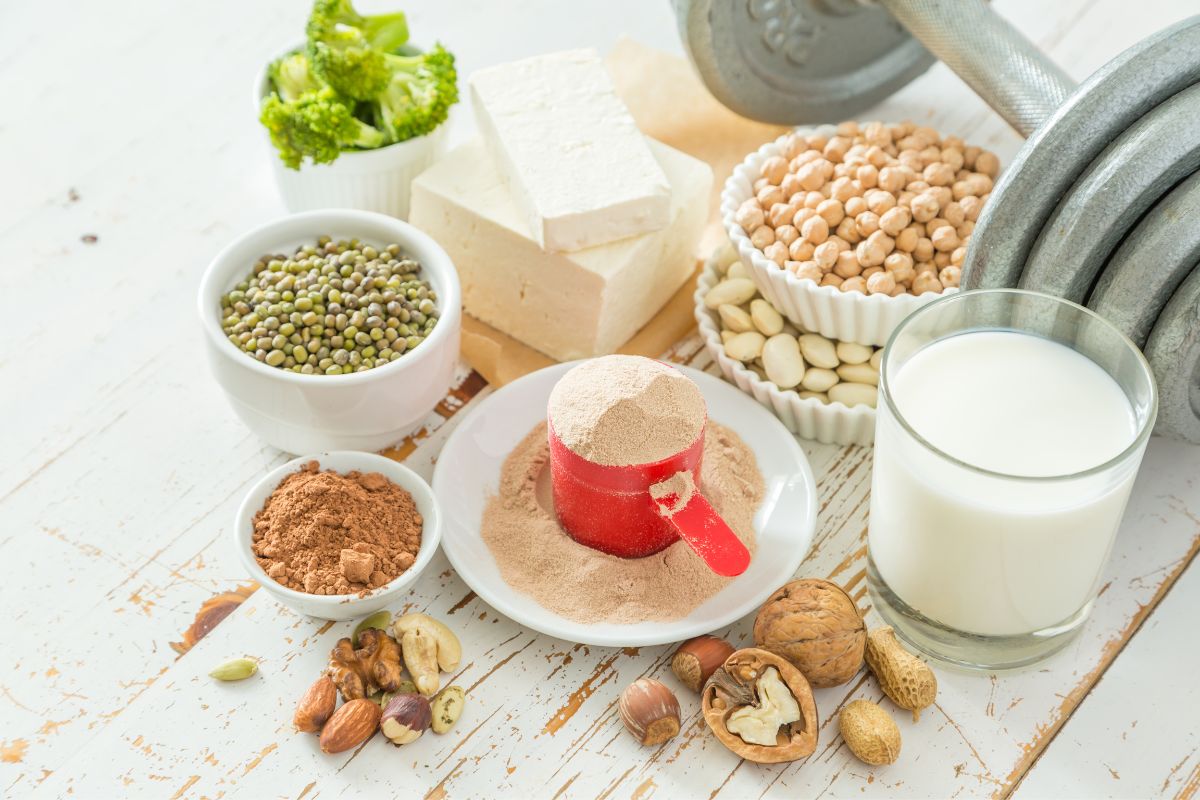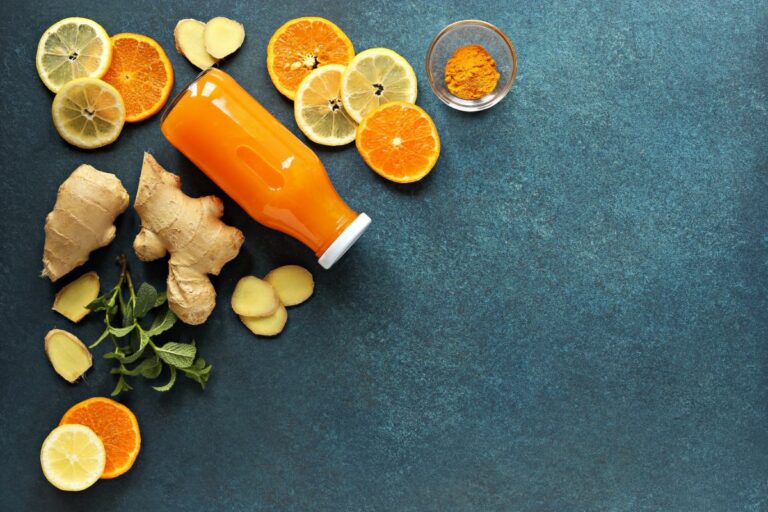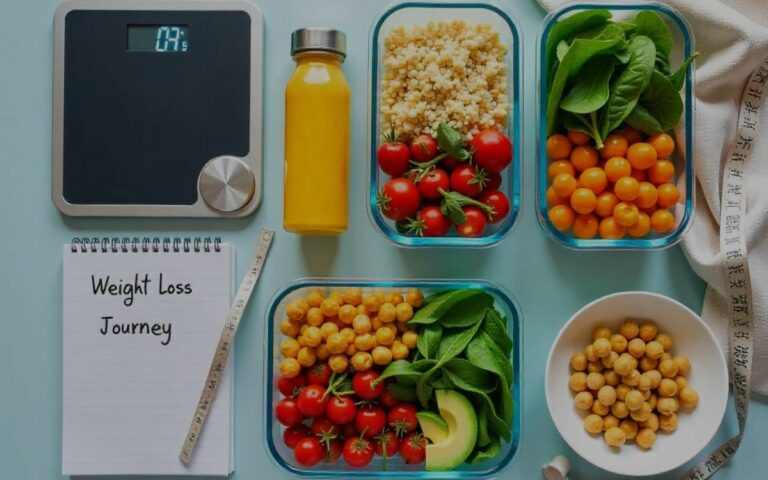Do You Need High Protein on a Vegan Diet?
When we think of protein sources, we often think of animal-based foods. Eggs, milk, chicken, and fish are often cited as the best sources of protein, but none of them are compatible with a vegan diet.
Protein is essential for a healthy body. We should aim to eat roughly 0.36 grams of protein for each pound we weigh.
Protein is particularly important for anyone looking to build muscle, as well as other high-activity lifestyles.
The vegan diet might limit your protein sources, but there are still many ways to ensure healthy protein consumption.
Foods such as legumes, nuts, and whole grains are high in protein and suitable for vegan diets. Find out more with this guide.
Why Do Vegans Struggle With Protein?
There are many health benefits to following a vegan diet, and even new vegans can find it easy to get the nutrition they need without animal-based ingredients.
However, there is one area of nutrition that many vegans struggle with, and that’s getting enough protein.
Meat, eggs, and dairy products are the main sources of protein in many omnivore diets. As these sources can be rich in protein, it’s rarely difficult for a meat eater to reach their recommended protein intake.
As these foods are excluded from the vegan diet, it can be a struggle for vegans to get enough of the nutrients to meet their needs.
All vegans need to ensure they’re getting enough protein in their diet, but it’s particularly important if you’re looking to gain muscle.
There are many vegan-friendly sources of protein available, and once you’re used to incorporating these foods into your diet, you can find it easy to reach your protein needs. Plant-based protein sources include nuts and grains, as well as tofu and pulses.
How Much Protein Does A Vegan Need?
Vegans and non-vegans need the same amount of protein, although it can be harder to consume enough protein on a vegan diet. The exact amount of protein recommended varies based on gender, age, and weight.
Other factors can also have an impact. For example, pregnant and lactating persons are recommended to consume more protein, and building muscle also requires protein.
The Dietary Guidelines for Americans recommends men over the age of 19 aim to consume 56g of protein per day.
Women over the age of 19 are recommended to consume 46g of protein per day. However, these are only guidelines, and your weight and activity level also play a role.
If you’re concerned you aren’t getting enough protein to meet your needs, speak to a doctor or nutritionist to determine how much protein is recommended for your age, weight, and activity level.
High Protein Foods For Vegan Diets
Not sure how to get protein into your vegan diet? These are some of the best sources.

Legumes And Pulses
Legumes and pulses are an essential part of most vegan diets. Legumes and pulses include chickpeas, kidney beans, pinto beans, lentils, peanuts, and split peas. This is a very diverse food group.
There are many ways to add legumes and pulses to your diet. They can often be used as meat substitutes.
For example, lentils can be used in place of ground beef. But they also can be used in forms of baking, such as black bean brownies, or turned into snacks like crispy chickpeas.
This is an important food group to familiarize yourself with.
Quinoa
Quinoa is an ancient grain that’s been grown for food for over 7,000 years (even if it isn’t technically a grain). What it is, however, is an excellent source of protein, and quinoa is regarded by many as a “superfood”.
Quinoa contains complete proteins, which have all nine essential amino acids. This makes it a valuable protein source for vegans.
Quinoa is also gluten-free, so it’s suitable for celiacs and those with gluten sensitivities.
Tofu And Tempeh
Tofu and tempeh are both made from soybeans, although the soy is cooked and prepared in different ways.
Popular as meat substitutes, tofu and tempeh both provide an excellent source of protein for vegans.
As tofu and tempeh can often be used in place of meat (and even eggs), they’re an easy way for even those new to veganism to introduce more protein into their diet.
Whole Grains
Whole grains still have an intact grain kernel, and they’re an important way for vegans to add more protein to their diet. Quinoa is often listed as a whole grain, but other forms include oats, wheat, rice, rye, and sorghum.
Whole grains can often be cooked and served with curries, stews, and salads. Another good source of whole grains can be bread and other baked goods.
If you’re struggling to find protein in your diet, look for vegan bread made with whole grains. Serve with nut butter for a quick protein-heavy snack.
Seitan
Seitan is another meat substitute with plenty of protein. It’s made from wheat gluten, so it isn’t suitable for people who are celiac, but it is an easy and protein-rich replacement for beef and chicken.
Soy Milk
Vegan milk alternatives generally lack the protein-rich quality of cow milk, but soy milk is the closest substitute. Cow milk contains roughly 3.56g of protein per 100g serving, while soy milk contains 3.27g per 100g.
Other vegan milk alternatives, such as almond and oat milk, lag behind dairy when it comes to protein levels. However, they do still contain some proteins, so can be used to increase overall intake.
Nuts And Seeds
Another easy method for incorporating protein into a vegan diet is using nuts and seeds.
These are typically rich in protein and can be sprinkled onto smoothies, salads, soups, and a variety of other meals. They can also be enjoyed as a snack!
Another easy source of protein to incorporate into a vegan diet is nut and seed butter.
For example, cashew butter and almond butter are both easy additions to meals, smoothies, and snacks, and they’re high in protein.
Vegetables
Although we don’t typically associate them with protein, vegetables are an effective way to add essential nutrients to your diet.
Some vegetables are better protein sources than others, so be careful when making your choice.
Some of the best vegetables to eat for protein include broccoli, spinach, Brussels sprouts, and asparagus. Mushrooms are also a good source of protein, and another useful meat alternative.
Protein Powders/Supplements
Incorporating the foods listed above into your diet should ensure you get enough protein daily. However, there are times when you may need to increase your protein intake with the addition of powders and supplements.
These are particularly useful for athletes and bodybuilders, who require more protein than the average person.
Protein powders and supplements are an easy way to track your protein intake, to ensure you’re getting enough.
Be careful when choosing a protein supplement to ensure it’s suitable for vegan diets. Many powders use dairy as a protein source, so won’t be compatible with a vegan lifestyle.
Explore Also:
Creativehouseblog
Dietsheriff
Gigasecurehome
Final Thoughts
Giving up meat, dairy, and eggs can seem like you’re losing the most important protein sources from your diet, but it is possible to get plenty of protein while eating vegan. You just have to be careful with your food sources!
One of the best ways to ensure you’re getting enough protein is to add protein-rich food to every meal. This way, you know you’re getting protein throughout the day.
Other Articles To Read
Vegan Diet For Bodybuilders – The Healthier Way
Why A Plant-Based Diet Is Better – It Just Is Healthier
Shred Power Cleanse Review Learn to Eat Better and Be Healthier




![Gut Health in Type 2 Diabetes Exploring Mechanisms and Remedies[1]](https://mycleanseplan.com/wp-content/uploads/2025/10/Gut_Health_in_Type_2_Diabetes__Exploring_Mechanisms_and_Remedies1-768x448.jpg)

![Data Privacy & Ethics in Gut Microbiome Testing Explored[1]](https://mycleanseplan.com/wp-content/uploads/2025/10/Data_Privacy__Ethics_in_Gut_Microbiome_Testing_Explored1-768x448.jpg)